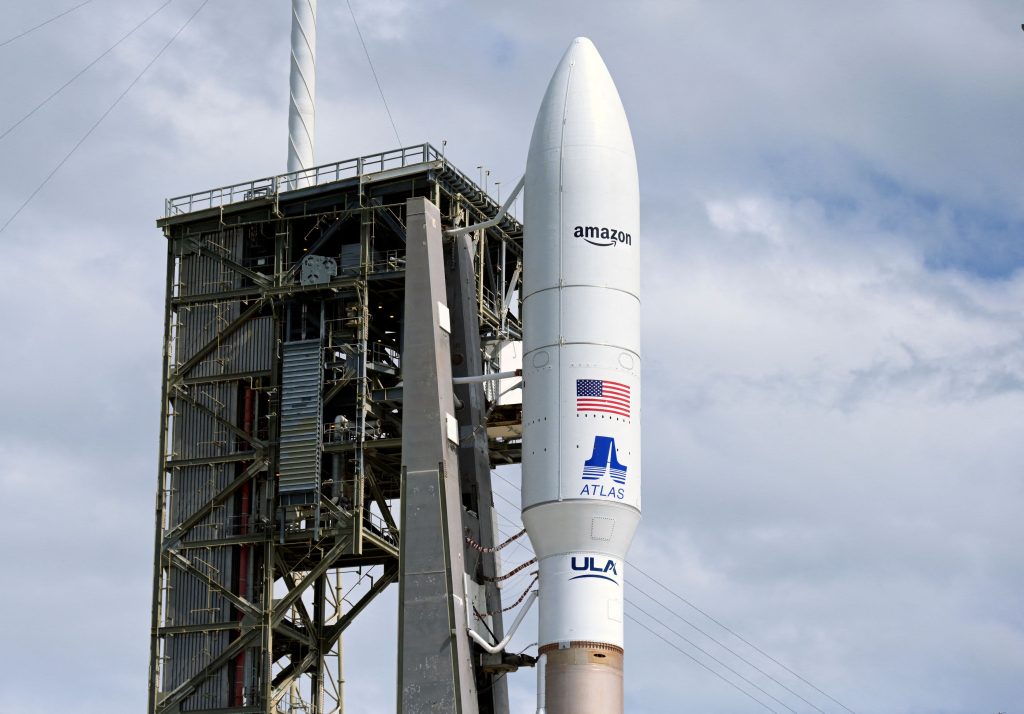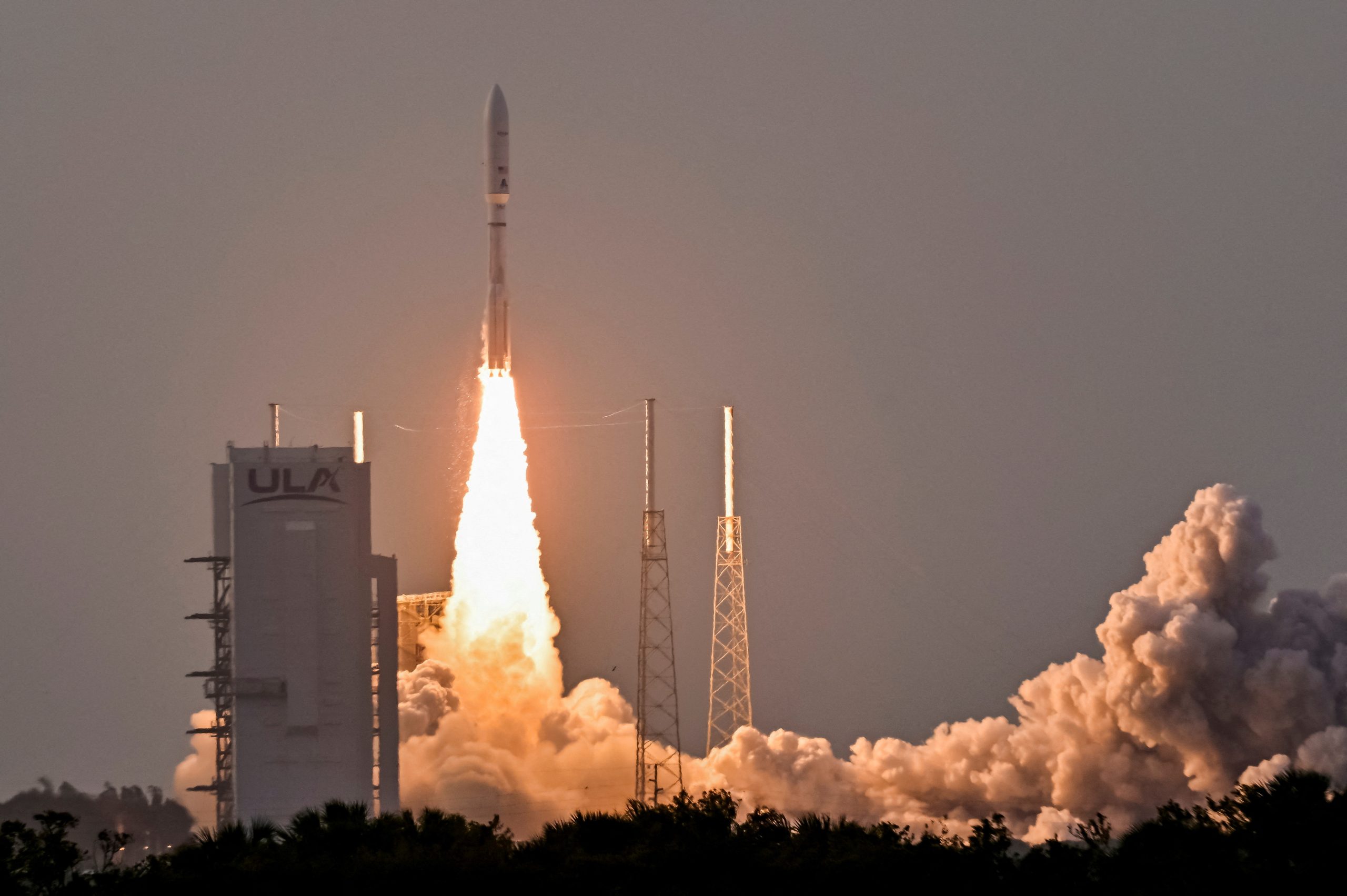Amazon launched its first set of Project Kuiper internet satellites on Monday, signalling its official entry into the increasingly competitive satellite broadband sector dominated by Elon Musk’s Starlink.
The mission, dubbed Kuiper Atlas 1, took off from Cape Canaveral Space Force Station in Florida at 7:00 pm local time (2300 GMT) aboard a United Launch Alliance (ULA) Atlas V rocket.
The launch placed 27 Kuiper satellites into low Earth orbit, following an earlier postponement due to poor weather.
Project Kuiper, a subsidiary of Amazon, aims to deploy over 3,200 satellites into orbit as part of a $10 billion initiative to deliver global internet connectivity.
While the service is not yet operational, Amazon has promised a full rollout later this year and hinted at competitive pricing in line with its broader retail strategy.
“This launch marks a new era in internet connectivity,” said ULA’s Caleb Weiss, noting the significance of Amazon’s entry into the field.

The move positions Amazon in direct competition with SpaceX’s Starlink, which has already revolutionised satellite internet access.
Since its first satellite launch in 2019, Starlink has placed over 6,750 satellites into orbit and now serves over five million users worldwide. It has also played a critical role in crisis zones, including post-earthquake Morocco and war-torn Ukraine.
Amazon, meanwhile, is preparing for rapid acceleration. The company has already secured more than 80 launch slots through a mix of providers, including ULA, France’s Arianespace, Jeff Bezos’s Blue Origin, and even SpaceX—its primary competitor.
Kuiper satellites will join the swelling ranks of low Earth orbit systems, which include OneWeb from Europe and China’s Guowang constellation. But the race for orbital dominance has raised concerns over congestion, the risk of satellite collisions, and interference with astronomical research.
The growing power of private companies in space has also stirred geopolitical unease. Musk’s Starlink, in particular, has become entangled in global affairs, with its use in Ukraine sparking debate.
While Starlink remains vital to Kyiv’s military communications, Musk has sent conflicting messages about its long-term role in the conflict, a topic further complicated by his ties to President Donald Trump, who has vowed to end the war.
Amazon’s Kuiper venture now adds another influential player to the mix, one that is likely to intensify both competition and scrutiny in the orbital internet age.


 Trending
Trending 
